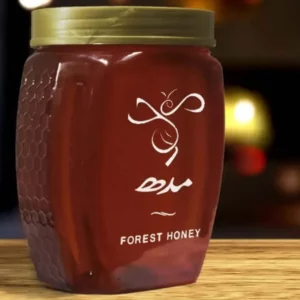In the delightful journey of parenthood, ensuring the well-being and health of your precious little one takes center stage. As a new parent, you’re bombarded with advice, recommendations, and cautionary tales from friends, family, and the internet. One such age-old question that often arises is: Can honey be given to infants? Let’s unravel the sweet truth behind this query, exploring the potential benefits and risks associated with introducing honey to your baby’s diet.
Understanding the Appeal of Honey
Honey, often hailed for its natural sweetness and potential health benefits, has been a staple in human diets for centuries. Packed with vitamins, minerals, and antioxidants, it’s no wonder that parents might consider adding a touch of honey to their infant’s meals. However, when it comes to babies under the age of one, caution should be exercised due to potential health risks.
The Sweet Danger: Infant Botulism
While honey is undoubtedly a natural wonder, it poses a unique risk to infants due to the potential presence of Clostridium botulinum spores. These spores, harmless to adults and older children, can multiply and produce toxins in an infant’s immature digestive system. This condition, known as infant botulism, can lead to severe health issues and, in rare cases, be fatal. To safeguard your baby’s health, it’s crucial to wait until their first birthday before introducing honey into their diet.
Nourishing Alternatives: What to Feed Your Baby
During the first year of life, a baby’s nutritional needs are best met through breast milk or formula. As your little one grows, you can gradually introduce a variety of solid foods to support their development. Opt for nutrient-rich options such as pureed fruits, vegetables, and iron-fortified cereals. These choices not only provide essential vitamins and minerals but also help establish healthy eating habits.
Beyond the First Birthday: The Right Time for Honey
Once your baby celebrates their first birthday, you can begin to incorporate honey into their diet. At this point, their digestive system is more developed and better equipped to handle any potential risks associated with honey consumption. However, moderation remains key. Limit honey intake to small amounts and use it as a natural sweetener for foods like yogurt, oatmeal, or whole-grain toast.
Unveiling the Benefits: Honey for Kids
As your child grows older, honey can offer various health benefits. Its antimicrobial properties make it a soothing remedy for coughs and sore throats. Additionally, honey’s natural sweetness can encourage a preference for wholesome, nutrient-dense foods. Just remember, moderation is key, and it’s essential to foster a balanced diet that includes a wide range of foods.
Conclusion
In the journey of parenting, every decision you make plays a crucial role in nurturing your child’s well-being. When it comes to the question “Can honey be given to infants?” the answer is a cautious “No” until their first birthday. Prioritizing your baby’s safety and health is paramount, and waiting to introduce honey is a small step that can have a significant impact. As your child grows, you’ll have the joy of sharing the sweetness of honey while ensuring they enjoy its benefits safely and responsibly.
FAQs (Frequently Asked Questions)
Q1: Why is honey unsafe for infants?
A1: Honey can contain Clostridium botulinum spores, which pose a risk of infant botulism, a serious illness.
Q2: When can I start giving honey to my baby?
A2: It’s recommended to wait until your baby turns one year old before introducing honey.
Q3: What are some safe alternatives to honey for infants?
A3: Breast milk or formula are the best sources of nutrition for babies under one year old.
Q4: How can I use honey for my child after their first birthday?
A4: After the first birthday, you can use honey in moderation as a natural sweetener for certain foods.
Q5: Are there any health benefits of honey for older children?
A5: Honey can offer antimicrobial properties and encourage a preference for nutrient-dense foods in older children when consumed in moderation.


